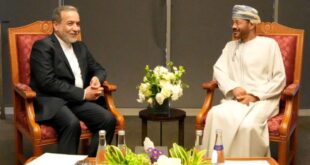
TEHRAN — Western analysts see Iran as relishing an Israeli offensive that will divert mounting pressure away from its nuclear programme and say Hizbollah could not have acted without a nod from its old ally Tehran.
Although Iran funded and supplied Hizbollah during the 1980s, it has denied supplying weapons in the latest round of violence and officials insist Tehran’s support is purely moral rather than military.
“Islamic states must help the Lebanese and Palestinian people by giving political, financial and economic support,” Iran’s Vice President Parviz Davoudi told the official IRNA news agency on Monday, echoing previous official comments.
“Islamic states must isolate the Zionist regime through diplomatic efforts,” he added, without outlining any specific role for Iran.
Analysts agree Tehran is likely to refrain from wading back into south Lebanon and say it is enjoying the deflection of attention away from its nuclear programme, which the West says is geared to building weapons.
“The Iranian strategy is that they can be accused of backing Hizbollah anyway so they are trying to buy time on the nuclear dossier while the noose is tightening a bit,” said Claire Spencer, head of the Middle East programme at the Royal Institute of International Affairs.
“My opinion is Hizbollah would not go ahead without consulting Iran,” she added.
Israel says Iranian weapons are being fired against it, with an Israeli military source saying on Saturday an Iranian-made C802 radar-guided land-to-sea missile hit and badly damaged one of his country’s ships.
Hizbollah says it has fired “Raad [Thunder] 2” and “Raad 3” rockets at a rail depot in the Israeli port city of Haifa. The “Raad” is an Iranian missile.
Back to the 1980s?
Iran’s hardline Revolutionary Guards have a history of involvement in south Lebanon, being deployed there to support Hizbollah’s campaigns against Israel in the 1980s.
Iran’s revolutionary hero Mostafa Chamran, a spiritual father of the Revolutionary Guards, forged his reputation as a pioneer of anti-Israeli warfare in Lebanon.
But Spencer said Hizbollah was now proving it was competent enough not to need Iranian reinforcements.
“There is no need for the Iranians to be physically present,” she said.
Tehran insists it no longer has any troops in the region.
Mark Thomas, co-ordinator of the Middle East and North Africa programme at the Royal United Services Institute, agreed Iran would have given its assent to Hizbollah activity but would not flaunt its involvement.
“There is a plausible deniability thing going on there …They are not going to do something blatant,” he said.
“Iran is trying to divert attention away from its nuclear programme,” he added.
When asked whether relations with Hizbollah would not make the international community more determined to take action over Iran’s atomic work at the UN Security Council, Spencer said: “Hizbollah was already part of the case against them.”
Thomas agreed: “The advantages of playing this card are greater than the disadvantages.”
Iran faces sanctions after failing to convince the international community that its nuclear programme is intended for power stations rather than weapons.Â
 Eurasia Press & News
Eurasia Press & News



